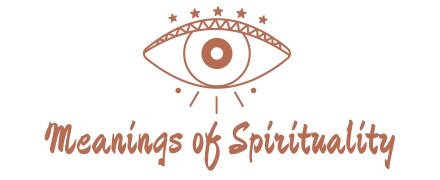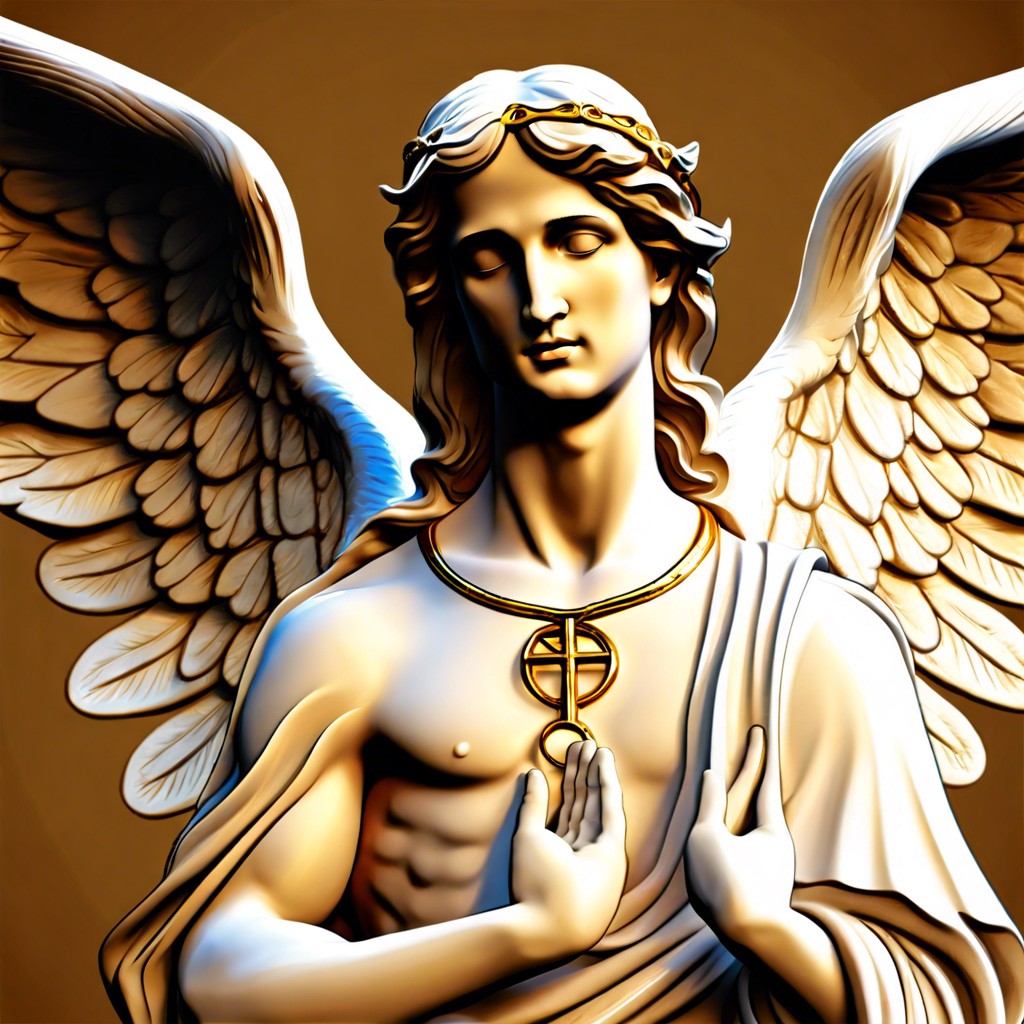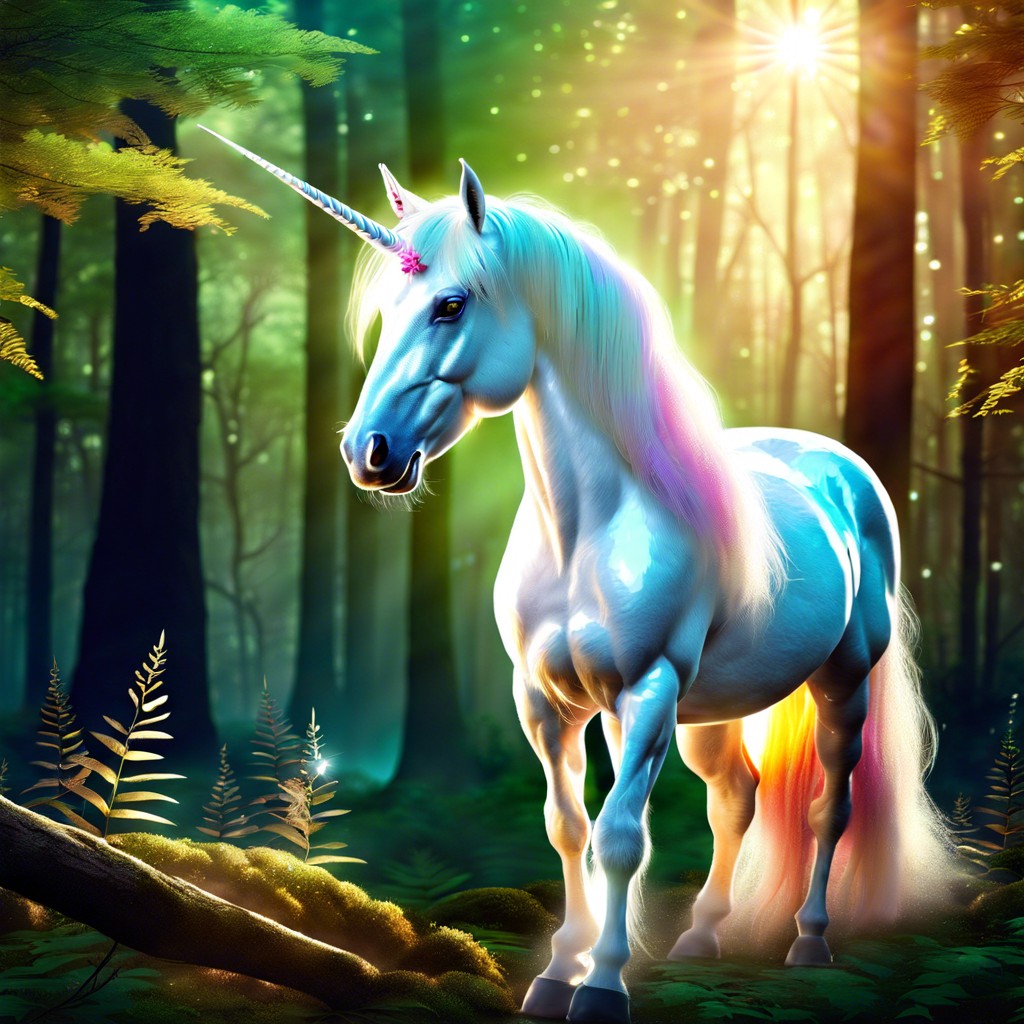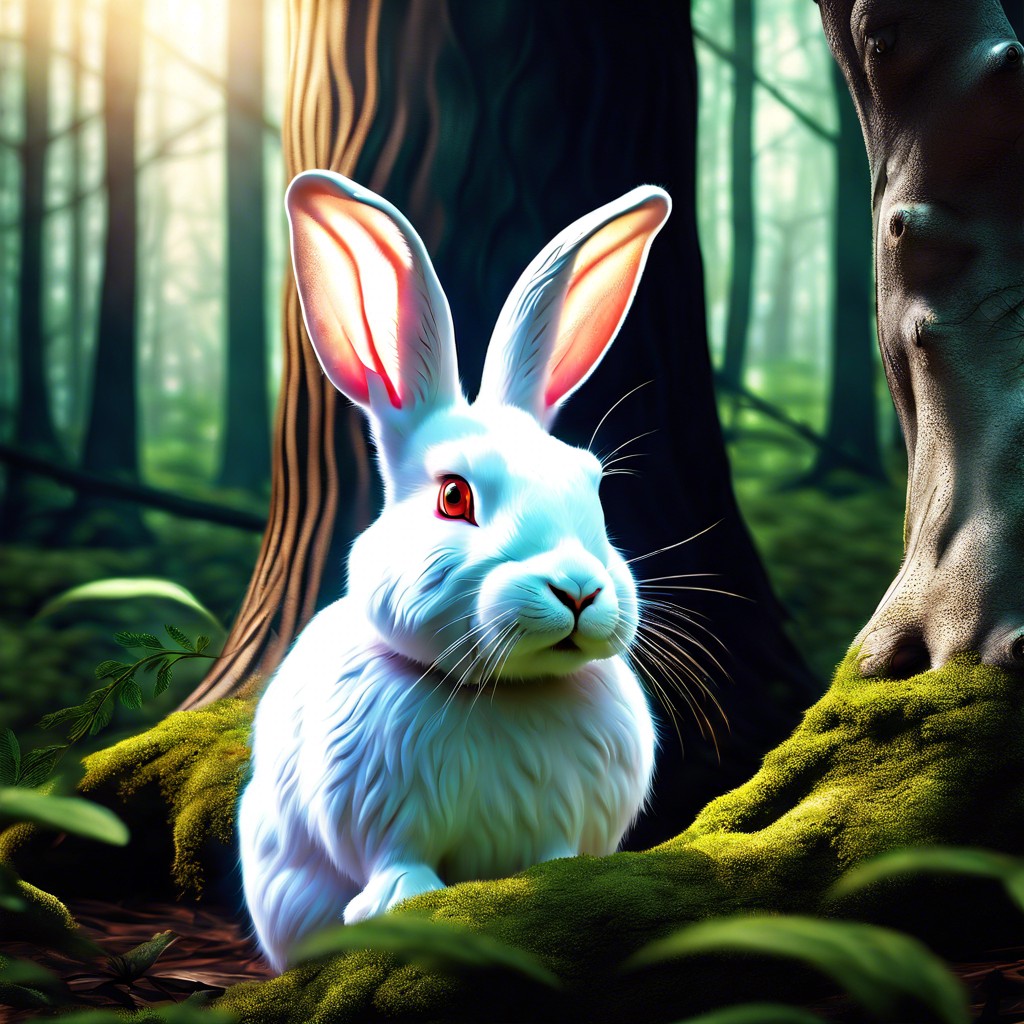This article will explain the spiritual meanings behind dragon symbolism across various cultures and beliefs.
Dragons have captivated human imagination for centuries, appearing across cultures as potent symbols. Whether you’re intrigued by their representation of power and strength, their role in transformation and rebirth, or their guardianship qualities, dragons embody timeless wisdom and knowledge. Delve into the rich tapestry of dragon symbolism, and discover how these majestic creatures illustrate themes of balance and duality, offering profound insights into our own lives.
Key takeaways:
- Dragons symbolize power, strength, and dominance in myths.
- They represent transformation, rebirth, and new beginnings.
- Dragons are guardians, protectors of treasures and realms.
- Dragons embody wisdom, knowledge, and enlightenment in many cultures.
- They symbolize balance, duality, and harmony of opposing forces.
Power and Strength
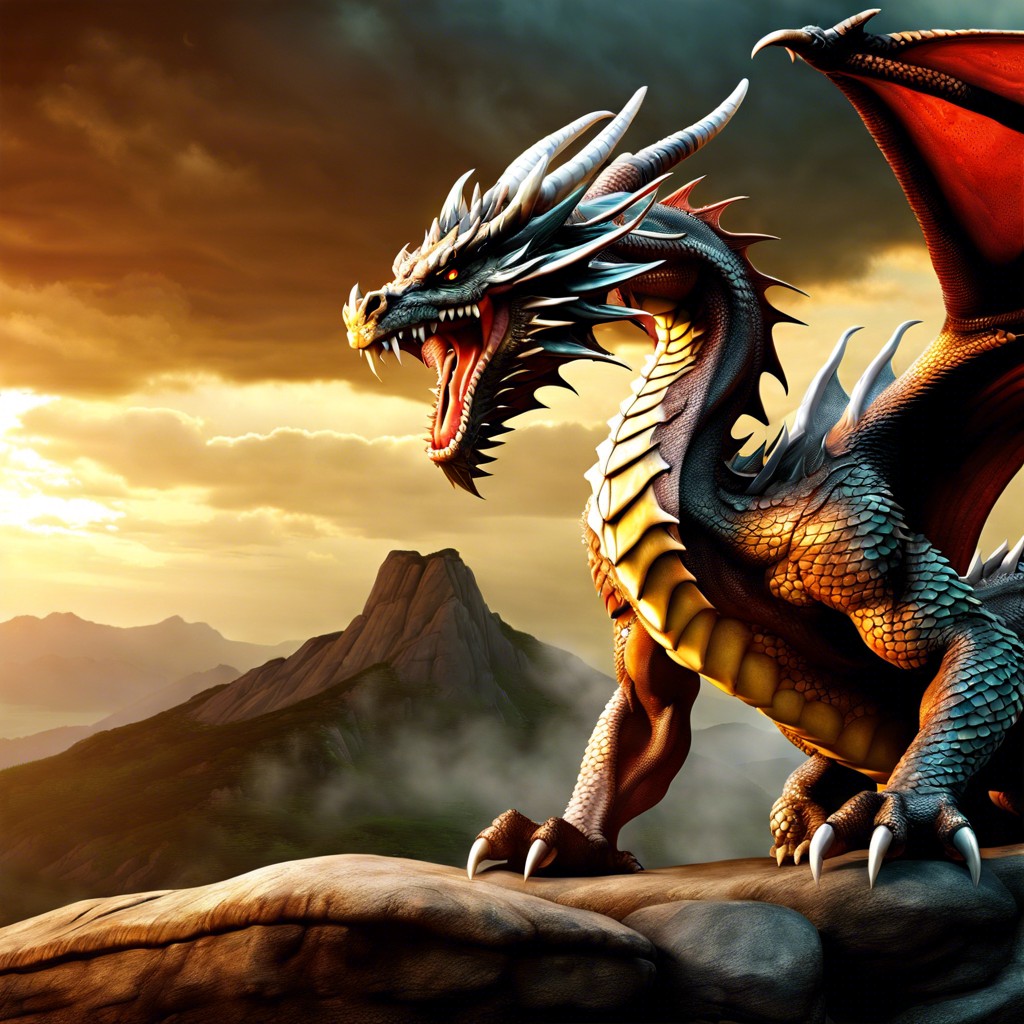
Dragons have long been seen as symbols of immense power. Their fierce and commanding presence in myths and legends highlights their association with strength and dominance. Often depicted with the ability to control elements like fire or water, dragons embody raw, untamed energy.
In various cultures, dragons are guardians of treasures and kingdoms. Their formidable strength makes them protectors against evil forces. Many ancient tales depict heroes needing to vanquish a dragon to prove their own strength and valor, underscoring the dragon’s role as the ultimate test of bravery.
Eastern dragon symbolism often presents them as harbingers of good fortune, signifying the power to bring prosperity and success. In contrast, Western dragons frequently represent challenges and obstacles to be overcome, serving as embodiments of both physical and metaphorical strength.
Dragons’ capacity for flight adds another layer to their powerful image, symbolizing freedom, transcendence, and the far-reaching influence of their might. Their ability to soar high above the earth reflects an unmatched perspective and the power of vision to see beyond the ordinary.
Transformation and Rebirth
Dragons often symbolize a cycle of transformation and rebirth. Their ability to shed old skin represents letting go of the past and embracing new beginnings.
In many cultures, dragons are linked to natural elements like fire and water. Just as fire can destroy yet create new growth, dragons embody the idea of renewal. Water symbolizes life and purification, aligning with the concept of starting anew.
These mythical creatures are seen in stories where they die and are reborn, illustrating life’s constant flow and change. Their transformative nature encourages us to embrace change and view it as an opportunity for growth and improvement.
Protection and Guardianship
Dragons are often seen as powerful protectors. In many cultures, they guard treasures, sacred places, and even people. The Great Wall of China is said to be guarded by dragons, symbolizing strength and a watchful presence.
In Western mythology, dragons often guard valuable hoards of gold and precious gems. This isn’t just about material wealth. It represents the safeguarding of what is precious, be it physical or spiritual.
In Eastern traditions, dragons are benevolent beings that protect celestial realms and earthly domains. They are invoked in rituals to ensure safety and to ward off evil spirits.
The idea of a dragon as a guardian highlights its role as a powerful, vigilant force. It embodies the ultimate protector, capable of great destruction but also immense care. This duality showcases the balance inherent in dragon symbolism.
Wisdom and Knowledge
Dragons often symbolize profound wisdom and deep knowledge. These mythical creatures are seen as custodians of esoteric secrets.
Their ancient and revered presence in various cultures illustrates an enlightenment that transcends the ordinary. Dragons are frequently depicted as all-knowing beings, possessing insight into life’s mysteries.
In many legends, dragons are the ultimate guardians of hidden treasures, not just material wealth but also the treasures of wisdom and spiritual enlightenment. A dragon’s guidance is highly sought after, representing a path to greater understanding.
In Chinese mythology, the dragon is a symbol of cosmic Chi and ultimate wisdom. It blends seamlessly with natural forces, embodying the harmony of the universe. Celtic tradition portrays dragons as creatures that connect the earthly realm with the divine, further enhancing their role as symbols of deep spiritual knowledge.
Balance and Duality
Dragons often embody the harmony of opposing forces. They are depicted with a blend of elemental powers like fire and water or earth and air. This duality suggests that true strength lies in balancing contradictions.
In many cultures, dragons represent the equilibrium between chaos and order. They are seen as majestic yet fierce, capable of destruction but also wise guardians. This symbolizes that embracing both our light and dark sides can lead to a fuller, more profound existence.
Their form often reflects this as well, combining features of different animals. This blend underscores the idea that unity and diversity coexist naturally, creating balance.
